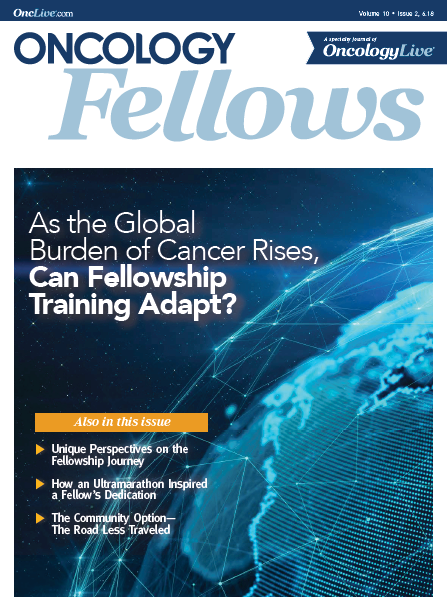The Community Option: The Road Less Traveled
As we advance toward producing an integrated cancer model, the value of the practicing community oncologist has revealed itself to be an integral piece of the puzzle.
Mary Kruczynski
With the plethora of new targeted agents, immuno-oncologic therapeutics, and next-generation sequencing, there has never been a better time to be a hematologist/oncologist, as the armament is rich. That said, the army of physicians needed to do battle with cancer in the community setting is becoming a scarce commodity. Policy makers, healthcare organizations, providers, and payers are failing to recognize the value of the delivery of that care in the cancer patient’s community, close to home and a support system of family and friends.
In the not too distant past, almost 85% of cancer care was delivered in the private practice, community oncology setting. Fast forward to 2018, and that percentage dwindles to a little more than 50% of patients being treated in their own communities. A number of factors account for the shift from community to hospital outpatient setting, including important issues that fellows should learn about, such as the 340B Drug Discount Program, site payment parity, and the sequester cut to drug payments. But the message coming out of Washington, DC, and from policy makers is that the era of corporate hospital-based cancer centers monopolizing the healthcare system is on its way out. Fellows would be wise to look to the future and consider the community practice option.
As we advance toward producing an integrated cancer model, the value of the practicing community oncologist has revealed itself to be an integral piece of the puzzle. Medicare’s health reform think tank, the Center for Medicare & Medicaid Innovation, has invested significant resources in the Oncology Care Model (OCM), which aims to both provide higher-quality, more highly coordinated oncology care and achieve cost efficiencies for Medicare and bene ciaries. Close to 200 oncology practices and 16 payers across the country treating more than 150,000 Medicare beneficiaries currently participate in this oncology-specific payment-and-delivery reform model.
The Community Oncology Alliance (COA) is focused on helping practices succeed and thrive in the OCM. The alliance also has invested significant resources to its proposed OCM 2.0 model, addressing several issues identified by participants and charting a path for incorporating value-based payments. Among all specialties, community oncology is much further along with producing an integrated care model that exemplifies high-quality, well-coordinated cancer care to patients that also reduces costs for Medicare and beneficiaries.
It is precisely for those reasons that the COA launched its COA Fellows Initiative, seeking to engage and educate hematology-oncology fellows about the value of practicing in the community setting. The program is designed to explore all practice setting options, inclusive of research, academia, government agency, and hospital-and community-based care, showcasing the array of choices post fellowship.
Current research shows that in just 2 short years, this country will experience a shortage of as many as 3800 oncologists. At the same time, an aging population, coupled with increased survivorship, will accelerate the need for even more hematology/oncology subspecialists.
Thriving community oncology practices exist throughout the United States, as evidenced by the COA job board and chatter among practices. The need for new physicians is real, and practices are eager to welcome new faces into the community.
COA looks forward to meeting with fellows across the country during 2018 to discuss the bene ts of community practice, as well as connect them with employment opportunities that fit their specific needs. There are a number of opportunities for first-, second-, and third-year fellows to join COA and for our members to attend national conferences, meetings, Capitol Hill lobbying days, and more to learn about the value of community oncology and its importance in the US cancer care system.
At a recent joint meeting of the North Carolina and South Carolina Oncology Associations, several fellows from nearby schools joined practicing oncologists at a relaxed dinner program discussing both the risks and benefits of joining a private community oncology practice. It became immediately evident just how much is not taught about real world oncology, which was readily acknowledged by program directors at other COA fellows programs. The Fellows Educational Initiative addresses precisely that problem, offering an opportunity to learn about the differences in practice, whether it be academia, hospital, or private practice community oncology. Only then can a fellow be armed to choose wisely the best personal fit.
You can learn more about COA and our Fellows Initiative at www.communityoncology.org/fellows.




